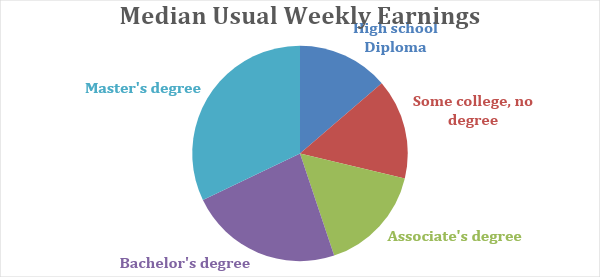- Introduction
- Should You Get a Master’s Degree Online?
- How to Choose a Graduate School for Online Degrees
- Factors Influencing the Cost of a Graduate Degree
- Deep Dive – Analyzing the Top Expenses of Graduate School
- Cost Comparison: Online School vs. On-Campus School
- How to pay
- What’s Your Return on Investment in Your Education?
- Bottom Line
Embarking on a master’s degree journey means thinking about schoolwork and money. In 2023, with lots of people learning online, part-time, and other modes of employment, it may be essential for them to understand just how much a master’s degree costs to plan their expenses throughout the program. This exploration examines the costs, especially for online master’s programs, to help students determine their graduate program. The National Center for Education Statistics found that, on average, it was about $19,749 each year for tuition and fees during the 2020-21 school year. While this number is just an estimate, it helps one know how much money you might need for advanced education in today’s changing world.
As education keeps changing, this guide aims to give practical tips to understand the money side of getting a master’s degree and help students make intelligent choices and plan their academic journey in today’s ever-changing education scene.

Table Of Contents
Should You Get a Master’s Degree Online?
In this fast-paced world, there are many reasons as to why one should do a master’s online. Students can pursue affordable online master’s degrees across diverse subjects, seamlessly blending virtual classes with practical training, even in programs demanding clinical or research components. As per the National Center for Education Statistics (NCES), over 1.2 million graduate students engage in online programs, with 900,000 fully immersed in virtual learning.
Some may even question why online masters are taking precedence over traditional programs. Online degrees provide the flexibility of earning a degree while working, and online students often enjoy equivalent benefits to on-campus peers, such as library access, student discounts, and comprehensive support services. Meeting learners’ needs without compromising essential academic resources underscores the rising popularity of online education.
How to Choose a Graduate School for Online Degrees
Choosing a good grad school and suitable online master’s is essential. Students commonly choose online programs based on their reputation for the best online masters programs, affordability, and flexibility to meet diverse needs.
A good grad school should:
- flexible degree programs
- ease of completing the curriculum
- fastest online master’s degree
- demonstrate academic excellence
- have an online master’s degree program on par with on-campus graduate degrees
- support both in-state students and out-of-state students
- preferably feature in any reputed school rankings
- exhibit recent research excellence framework.
Factors Influencing the Cost of a Master’s Degree
Master’s programs focus on providing students with advanced knowledge and skills to take on challenging careers in their chosen fields. However, graduate schools (primarily private and for-profit) have several overheads to bear when imparting education. They must invest in infrastructure and faculty training to improve their offerings and reputation. These factors directly affect tuition and graduate school costs for on-campus and online programs.
Some determinants of cost include, but are not limited to:
- School rankings and reputation
- Location of the college
- Accreditation of programs and the college
- Qualifications and the experience of faculty and staff
- Infrastructure and research facilities
- General upkeep of the institution
- Trusted partner programs (if any)
- Number of students enrolled in a program
Deep Dive – Analyzing the Top Expenses of Graduate School
The cost of a graduate degree varies based on factors like subject, university, and location. According to Peterson, a master’s degree can range from $30,000 to $40,000 in tuition and fees. Public schools tend to be more affordable for in-state students. Many graduate students choose off-campus living, and those with established careers often stick to their current residences, reducing costs.
For online master’s programs, significant expenses include:
Tuition
Average Cost Range: $54,000- $73,000
The most significant expense is annual tuition and fees. Directly affecting yearly tuition is the duration of the program. A typical graduate degree requires a 2-year course of study, but depending on the subject, the program may be anywhere from 18 months to three years long. If the student takes only one course at a time, some online schools charge more per credit hour than if several courses are taken simultaneously.
The per-credit rate decreases when a student enrolls in more credit hours per semester. Of the 20 Most Affordable and accredited Online Master’s Programs, the cost per credit hour will be $215 to $1397.
(Note: Tuition varies for in-state students and out-of-state students.)
Fees
Average Cost Range: $65,134
Unfortunately, tuition isn’t the sole financial consideration when attending university. Depending on the number of credits enrolled for the semester, various fees will likely be incurred.
Some of these fees include:
- Per Credit Fees
- Technology / Tech Support Fees
- Counseling Fees
- Assessments for Course-Level Placement
- Laboratory Fees
- Criminal Background Checks
- Research Courses
- Trusted Partner Programs Fee
- Exam Proctoring
- Official Transcript Fee
- Graduation Fee
Technology
Average Cost Range: $114-$196.50
The backbone of an online master’s is, of course, technology. Technology-related costs typically run into thousands of dollars but are inevitable.
The following items are mandated for an online master’s, some of which are also required for a traditional on-campus master’s program:
- A good laptop or desktop computer
- Computer accessories or peripherals (headphones, speakers, etc.)
- Broadband Modem and Wireless Router
- Broadband Connection or Wireless Internet Service (recurring monthly)
Other Costs for a Graduate Degree
Average Cost Range: $50-$14,170
Most master’s degree programs require an internship, and this may hold for some online master’s programs as well, adding to the overall cost. Prospective students are also advised to conduct a school search to see if travel is involved or if other program requirements may affect the cost.
Additionally, many more factors can add up to hundreds of dollars, which one must consider, including:
- Books
- Lab fees
- Technology fees
- Materials and textbook expenses
- Application fees
- Graduation fees
- Thesis or dissertation binding fees
- Exam fees
- Health insurance fees
- Housing and living expenses (if relocating)
- Commuting costs
- Professional association memberships
- Research expenses
- Fieldwork or travel costs
- Miscellaneous campus fees
Tuition vs. Overall Cost
Tuition is not a rip-off, but it is also not exactly transparent. One of the most common complaints among college students is that it is easier to know how much something costs once one gets the bill.
And when one does get the bill, it is difficult to determine what has been paid for. While some colleges list the overall program cost on their websites, these institutions are few and far between.
Financial Aid for Graduate Students
Financial aid for graduate students plays a crucial role in easing the financial burden of advanced education. Understanding the various financial aid options available and exploring eligibility criteria is essential for graduate students seeking to manage the costs associated with advanced education.
Here are critical avenues for support:
- Fellowships and Scholarships
Many institutions offer merit-based fellowships and scholarships for exceptional graduate students. These awards can cover tuition, living expenses, or research costs. - Assistantships
Graduate assistantships provide financial support in exchange for work within the university, often as a teaching or research assistant. These positions may include a stipend, tuition waiver, or both. - Grants
Various organizations and government agencies provide grants to graduate students based on academic merit, research proposals, or specific fields of study. - Loans
Federal and private loans are available for graduate students. However, being mindful of repayment terms and interest rates is crucial. - Work-Study Programs
Some graduate students may be eligible for work-study programs, allowing them to gain work experience related to their field of study while earning income. - Professional Development Funds
Specific programs or departments allocate funds to support graduate students’ attendance at conferences, workshops, or other professional development opportunities. - Employer Assistance
Some employers offer tuition reimbursement or financial assistance for employees pursuing graduate degrees relevant to their careers. - Veteran Benefits
Veterans and active-duty military personnel may qualify for education benefits, including the Post-9/11 GI Bill. - Specialized Programs
Specific fields have specialized financial aid programs. For instance, healthcare professionals may access programs like the National Health Service Corps Scholarship. - Part-Time Work
While pursuing a graduate degree, students may explore part-time employment opportunities to supplement their income.
Cost Comparison: Online School vs. On-Campus School
While it’s commonly believed that online master’s degrees are more expensive than on-campus programs, delving into the details reveals a nuanced reality. Although online tuition fees may be higher, factors such as flexibility, reduced living costs, and potential work opportunities often make the overall cost of an online master’s degree more competitive.
- Out-of-State Tuition – most on-campus schools charge an extra fee if graduate students are out of state, but not all online schools charge this fee.
- Personal Expenses – No personal expenses are involved when students attend online programs because they take their classes from the comfort of their homes.
- Housing and On-Campus Fees – Not having to pay for housing and on-campus fees, plus other expenses, automatically reduces the overall cost.
- Lower Cost-per-Credit – The average cost per credit is also lower for most universities.
Considering the varied costs in their school search, prospective students can conduct a budget analysis for a clearer understanding. One can identify how schools can offer flexible degree programs at reasonable costs.
Note: While particular online master’s programs may be less expensive, cost comparisons should be meticulously researched for each university and its specific program.
What’s the Average Cost of an On-Campus Master’s Degree?
According to Sallie Mae, the average amount graduate students spend is $24,812 annually. A typical master’s degree lasts two years, so it is safe to estimate that the average master’s degree cost is around $48,000. It is important to note that there is a vast difference in this cost based on programs and schools.
For example – a Master of Business Administration (MBA) will typically cost more than other master’s degrees. However, the tuition and fees of MBA programs from IVY League schools will be substantially more than MBAs or trusted partner programs from other institutions. Discover school rankings by affordability.
What’s the Average Cost of an Online Master’s Degree?
Online master’s degree costs vary based on the subject, state, and program, similar to traditional degrees. While it’s challenging to provide a precise average, considering such universities puts the cost at around $522-$1,397 per credit hour for an online master’s degree.
The primary expense is the tuition fee, which factors like out-of-state charges can influence.
According to USA News, for-profit universities often have lower fees than out-of-state tuition at public or private institutions. Interestingly, some universities waive out-of-state expenses for online master’s students; for example, programs on advertising-supported sites might slightly reduce costs.
Here are a few universities that do not charge an out-of-state tuition fee for online master’s students:
- Southern New Hampshire University
- Western Governors University
- The University of Iowa
- Wichita State university
Savings from Online Programs
Average Total Savings: $31,165
The tuition and fees for graduate school may or may not be higher than on-campus schools based on the program of study and the state. Still, one can undoubtedly take advantage of in-state tuition costs with online universities that do not charge an out-of-state fee and other costs that typically do not apply to online education. Here is a quick run-down of savings prospective students can expect out of online master’s degrees:
- Room and Board
- Campus Security
- Campus Recreation
- Student Health Services
- Student Legal Services
- Student Organizations
- Athletics
- Transport
- Fuel
- Parking
How to Pay for Master’s Degrees
Master’s degree programs can be costly, but many colleges offer a pay-as-you-go option, easing budgeting concerns. Online learning provides financial advantages like eliminating commute costs and enabling students to work while studying.
Finding funding for a master’s degree is a top priority for prospective students. Here are ways to finance online education:
Scholarships
Scholarships are one of graduate students’ most prized and commonly used financial aid forms for an online program. Sometimes called fellowships, scholarships can be paid off.
Many are sponsored or administered by various sources, including master’s degrees, individuals and private trusts, charitable organizations, nonprofit organizations, and business corporations.
Note: Beware of the many Scholarship Scams online.
Grants
Grants and scholarships are usually interchangeable because, like scholarships, grants
do not have to be paid back. However, the most significant difference is that grants are typically need-based, while scholarships are usually merit-based.
The most popular grant is the Pell Grant, which is offered through federal financial aid. Specific federal grants are also available to graduate students, such as – TEACH Grants, Iraq, Afghanistan Service Grants, Fulbright Grants, etc.
Student Loans
Repayment is a requirement for loans, resulting in reduced student debt for master’s degrees. Federal student loan options include Direct Unsubsidized Loans (with immediate interest accrual) and Direct PLUS Loans (with deferred interest for six months post-graduation).
Parent loans, contingent on creditworthiness, enable parents to contribute to their child’s education. Additionally, students can explore private student loans from banks and credit unions as an alternative funding option.
Fellowships
Usually designated for doctoral students, fellowships are also accessible to graduate degree seekers. Merit-based, these opportunities enable full-time pursuit of a master’s degree and research, alleviating financial concerns.
Note: Schools or professional/research organizations commonly provide these fellowships.
FAFSA
Securing funding for graduate education requires the completion of the Free Application for Federal Student Aid or FAFSA®. It establishes eligibility for financial aid and aids schools in awarding scholarships or grants for master’s degrees.
Prospective students are encouraged to consult the Best Guide to Financial Aid to understand the funding options for online graduate education.
What’s Your Return on Investment in Your Education?
In most cases, individuals holding a master’s degree tend to earn a higher annual income than those with only a bachelor’s degree in the same field. According to the U.S. Bureau of Labor Statistics, the median yearly wage for full-time workers aged 25 and over, holding a master’s degree was $65,000 to $69,700, whereas those with a bachelor’s degree earned $53,400 to $59,600. For example, in Computer Science, professionals with a master’s degree earn $136,620 per year, surpassing the $91,187 earned by those with a bachelor’s degree, as reported by data from PayScale.
There are many useful master’s degrees that are also high-paying. For example, someone with a master’s in computer science can avail of positions like Computer and Information Research Scientists, with a median salary of $136,620 annually. However, someone with a bachelor’s degree in computer science can avail of positions like computer programmers with a median salary of $97,800 annually.
Table 1: Earnings according to educational attainments

Understanding the projected ROI for different education levels is pivotal for individuals considering their academic journey. From high school diplomas to master’s degrees, each level of education carries its financial implications and potential earnings.
A study done by the Bipartisan Policy Center found that most schools showed positive returns on investment (ROI), with percentages ranging from 71% to 86% across different models. Public schools generally had higher positive ROI (93% to 99%), while private for-profit schools were less likely to have positive ROI (21% to 48%).
Schools with high-earning technical fields and prestigious private institutions had the best ROI estimates. However, Historically Black Colleges and Universities (HBCUs) had varying ROI results. The study acknowledges data limitations and emphasizes the need for more detailed information for better policy decisions.
Table 2: Return of Investment projections post Education Level up to 5 years
| Education Level | Year 1 – Entry-Level Average Salary | Year 2- Mid-Level Average Salary | Year 3 | Year 4 | Year 5 |
|---|---|---|---|---|---|
| High School Diploma | $30,000 | $35,000 | $40,000 | $45,000 | $50,000 |
| Bachelor’s Degree | $45,000 | $55,000 | $65,000 | $75,000 | $85,000 |
| Master’s Degree | $60,000 | $75,000 | $90,000 | $105,000 | $120,000 |
Note: The average salaries represent these values, and the actual figures will vary based on factors such as the chosen field of study, career path, and location.
The Bottom Line
Whether you’re a high school graduate, an undergraduate, or just exploring educational options, the cost of tuition is a crucial factor in deciding where to enroll. Striking a balance between the best, affordable online colleges while considering the right degree is essential for making well-informed decisions.
Considering all the factors discussed, opting for an online school instead of a traditional one can result in substantial savings on the total cost of earning a master’s degree.

 Edited By
Edited By 
